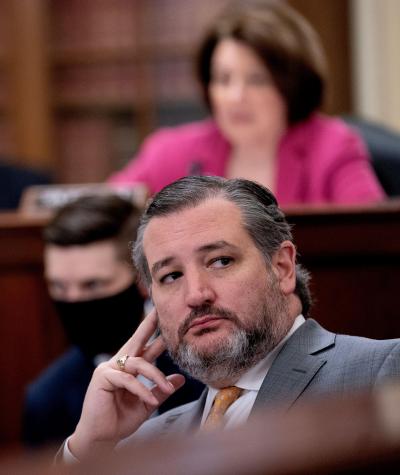Campaign Legal Center (CLC), joined by Citizens for Responsibility and Ethics in Washington (CREW), Common Cause and Democracy 21, filed an amicus brief in the case Federal Election Commission (FEC) v. Ted Cruz for Senate.
The brief, filed on Nov. 22, 2021, defends a law that prevents potential corruption from arising when politicians make large personal loans to their own campaigns only to repay them with donations received after Election Day.
At hand in this case, which is now before the U.S. Supreme Court, is the risk of corruption posed by what is, functionally, a personal gift to a candidate. Federal law limits candidates from using more than $250,000 in contributions raised after the date of an election to repay outstanding personal loans candidates make to their campaigns.
In 2018, Sen. Ted Cruz (R-T.X.) put $260,000 of his own money into his reelection and sued the FEC the following year, complaining that this law prevented him from paying off the last $10,000 with post-election contributions.
In June, the District of Columbia Court of Appeals sided with Sen. Cruz, striking down the limit on the amount candidates can raise post-election to repay personal loans to their campaigns.
What should concern all voters is that the funds raised for such a purpose are not the typical campaign contributions made to a candidate to support an active campaign.
Instead, they are solicited after the election has occurred for the sole purpose of repaying the candidate’s personal campaign loans—and thus the money effectively goes right into that candidate’s pocket.
Without the loan repayment limit, the opportunity for corruption is enormous: an officeholder could raise millions of dollars from special interests and lobbyists after an election and pocket that money in the form of a loan repayment. With a Senate election, it would be six years before the voters have a chance to act on that information.
Thus, it should be no surprise that Americans overwhelmingly express concern over the potentially corruptive nature of post-election campaign contributions.
The Court should make short work of rejecting Sen. Cruz’s constitutional challenge. Voters have a right to know which wealthy special interests are writing checks to the candidates on their ballot, a form of knowledge that becomes useless if that check is written after votes are cast.

